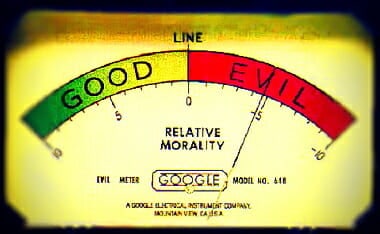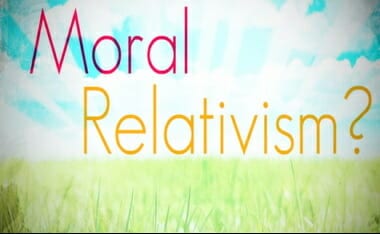(Originally posted September 2013; updated June 2021)
My title, “An Atheist Response Turns Into Evidence of God,” is worded that way because if the evidence used against God is said to be proof against His existence… and later it is shown that such evidence actually support the God hypothesis, it doesn’t cease being evidence, it just changes columns (or can be in both). Much to the skeptics chagrin. (In other words, “natural evil” turns out not to be so evil.)
First order of business: God Talk
Mind you, these are consequences of a fallen world, i.e., things that must happen via entropy in order for life to continue when not sustained directly — like before the fall. One commentator put it thus:
- The question then becomes how do we know if a particular natural disaster is directly from God. The answer is simple. We don’t know. What we do know is that the ratio of the very small number of God-announced natural disasters compared to the total number of naturally occurring natural disasters is very, very small. So we can safely assume that a natural disaster is probably just that, a naturally occurring phenomena that happens because we live in a fallen world [….] So let’s stop blaming God for something that He didn’t directly cause…. (DAVE MAYNARD)
However, as an aside, “fullness of history” itself is known by God alone, so verses like this make known a great mystery that all of it bends to the “arch of God,” if you will:
- He made known to us the mystery of His will, according to His good pleasure that He planned in Him for the administration [dispensation] of the days of fulfillment [of times]—to bring everything together in the Messiah, both things in heaven and things on earth in Him. (Ephesians 1:9-10)
To support the idea of Mr. Maynard, here is the final paragraph of a decent short dealing with the Sovereignty of God:
- While Christian thinkers often have used speculative methods in an attempt to explain the interplay of God’s sovereignty and human responsibility, finite creatures likely will never fully understand this mystery. Yet believers can live in the full confidence that God is in control and that the Lord of the universe always does what is right (Genesis 18:25b).
Hurricanes
Another example is that hurricanes help to regulate the earths temperature, and cause “sea deserts” to bloom… assisting in many ways earth’s climate:
- “Some parts of the ocean are like deserts, because there isn’t enough food for many plants to grow. A hurricane’s high winds stir up the ocean waters and help bring nutrients and phytoplankton to the surface, where they get more sunlight, allowing the plants to bloom,” Babin said. (NASA | NASA)
OXYGEN
Why are these “blooms” important, you ask? Well, the blooms produces most of the worlds oxygen, one old article I noted said 90% — but in fact it is closer to 50% (NATGEO says %50… still, that’s the lions share!), and revitalizes what is known as “Dead Zones” in the ocean. Which bring life in “blooms” to the ocean which feed its inhabitants. To wit:
In the process of photosynthesis, phytoplankton release oxygen into the water. Half of the world’s oxygen is produced via phytoplankton photosynthesis. The other half is produced via photosynthesis on land by trees, shrubs, grasses, and other plants.
DEAD ZONES
To support the above, via TAMPA BAY TIMES:
….“Most certainly,” says Steve DiMarco, a Texas A&M University oceanography professor who for 16 years has studied the Gulf of Mexico, which has a “dead zone” where oxygen-depleted water can kill marine life.
In early July, most of the Texas-Louisiana shelf from Freeport, Texas, to the Mississippi River Delta was hypoxic – meaning the salt water has lost large amounts of oxygen. Later in July, Hurricane Dolly disrupted the dead zone and re-oxygenated the shallow waters south of Louisiana and the entire shelf off Texas. Oxygen levels started to drop again within days after the storm.
In early August, Hurricane Eduard re-oxygenated the Louisiana shelf, but by mid-August oxygen concentrations dropped to hypoxic levels.
And guess what?
Hurricane Ike re-oxygenated the shelf when it made landfall Sept. 12 in Texas. The latest data collected in October showed oxygen concentrations nearly all at normal levels, DiMarco said….
For even more examples, head over to WINTERY KNIGHT and his post on the matter, “Why does God allow so much natural evil from phenomena like earthquakes?” For example, plate-tectonics and earthquakes are turning out to be an observed necessity for life to exist (as Fazale was mentioning):
EARTHQUAKES
…New research provides yet another component that appears fine-tuned for life. In a letter in the September 27, 2007 issue of Nature together with a corresponding news release from the University of Bonn, Arno Rohrbach and his colleagues have discussed another mechanism similar to the carbonate-silicate cycle. It also depends on plate tectonics but, in this case, the mechanism controls the amount of oxygen on the surface of the Earth.
Oxygen becomes bound up in various oxides which are then drawn into the Earth’s interior, where various processes result in its being incorporated into an exotic mineral called majorite. The results reported in this letter established that majorite functions as a kind of “reservoir” for oxygen, and when the majorite ascends nearer to the surface of the Earth it breaks down and releases its oxygen. Some of this oxygen also binds with hydrogen released from the interior of the Earth to form water. The authors have referred to the whole process as an “oxygen elevator.”
They go on to say that “without the ‘oxygen elevator’ in its mantle the Earth would probably be a barren planet hostile to life. According to our findings, planets below a certain size hardly have any chance of forming a stable atmosphere with a high water content.”
This research confirms the existence of one more finely tuned mechanism that depends on plate tectonics and contributes to an environment that can support life. It also gives humans one more reason to be appreciative rather than dismayed when we experience an earthquake that breaks some precious possessions beyond repair.
In other words, the skeptic should be THANKING God for the environment that allows life. The gift of life and the opportunity to know and have a relationship with your Creator is a miracle! And is why God is a jealous God and burns with righteous anger at the rejection of giving Him alms — instead the non-regenerate use even their breath to curse Him.
C.S. Lewis:
If a good God made the world why has it gone wrong? And for many years I simply refused to listen to the Christian answers to this question, because I kept on feeling “whatever you say and however clever your arguments are, isn’t it much simpler and easier to say that the world was not made by any intelligent power? Aren’t all your arguments simply a complicated attempt to avoid the obvious?” But then that threw me back into another difficulty.
My argument against God was that the universe seemed so cruel and unjust. But how had I gotten this idea of just and unjust? A man does not call a line crooked unless he has some idea of a straight line. What was I comparing this universe with when I called it unjust? If the whole show was bad and senseless from A to Z, so to speak, why did I, who was supposed to be part of the show, find myself in such violent reaction against it? A man feels wet when he falls into water, because man is not a water animal: a fish would not feel wet. Of course I could have given up my idea of justice by saying it was nothing but a private idea of my own. But if I did that, then my argument against God collapsed too — for the argument depended on saying that the world was really unjust, not simply that it did not happen to please my private fancies. Thus in the very act of trying to prove that God did not exist — in other words, that the whole of reality was senseless — I found I was forced to assume that one part of reality — namely my idea of justice — was full of sense. Consequently, atheism turns out to be too simple. If the whole universe has no meaning, we should never have found out that it has no meaning: just as, if there were no light in the universe and therefore no creatures with eyes, we should never know it was dark. Dark would be without meaning.
C.S. Lewis, Mere Christianity (San Francisco, CA: Harper San Francisco, 1952), 38-39.

















